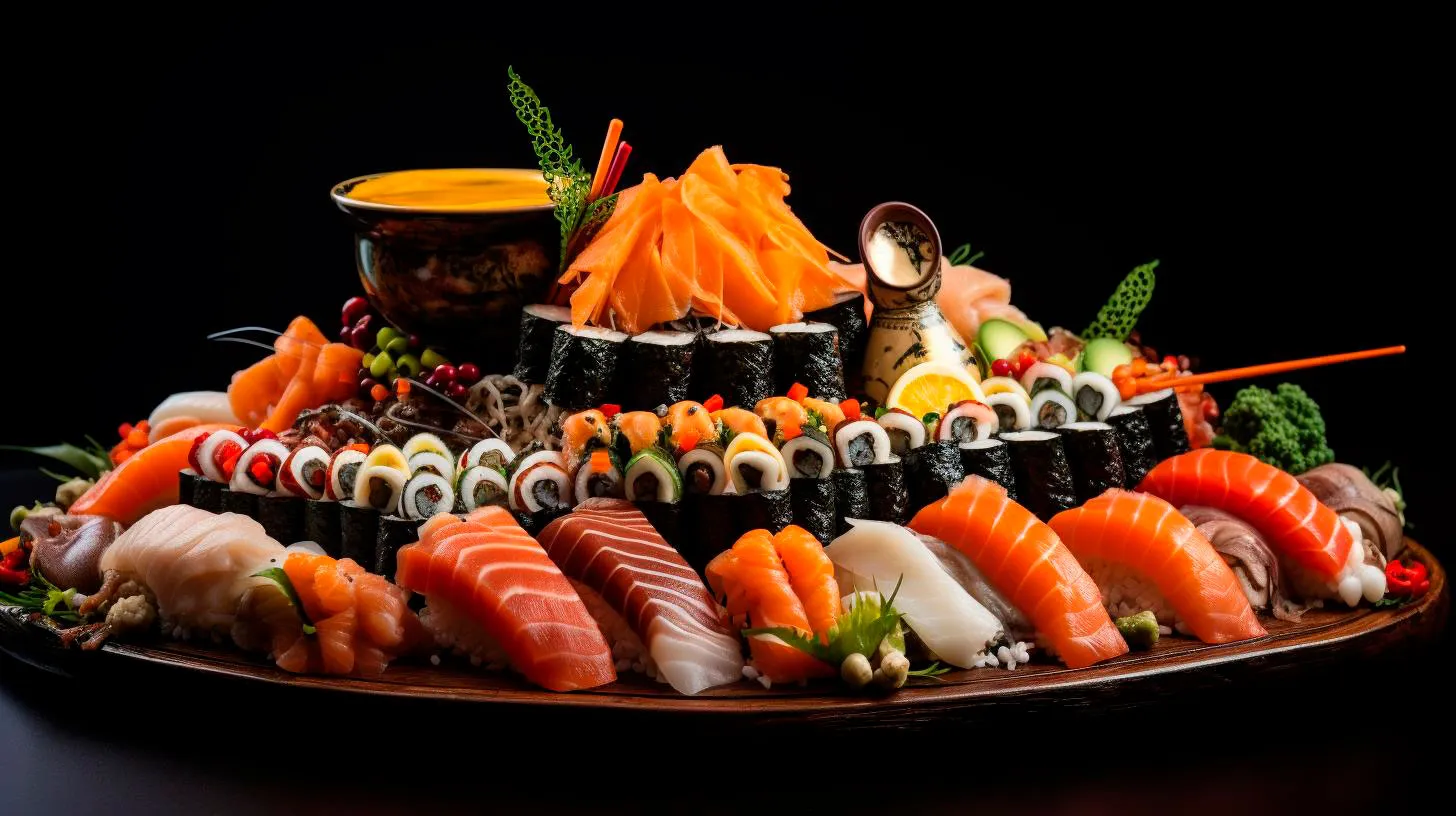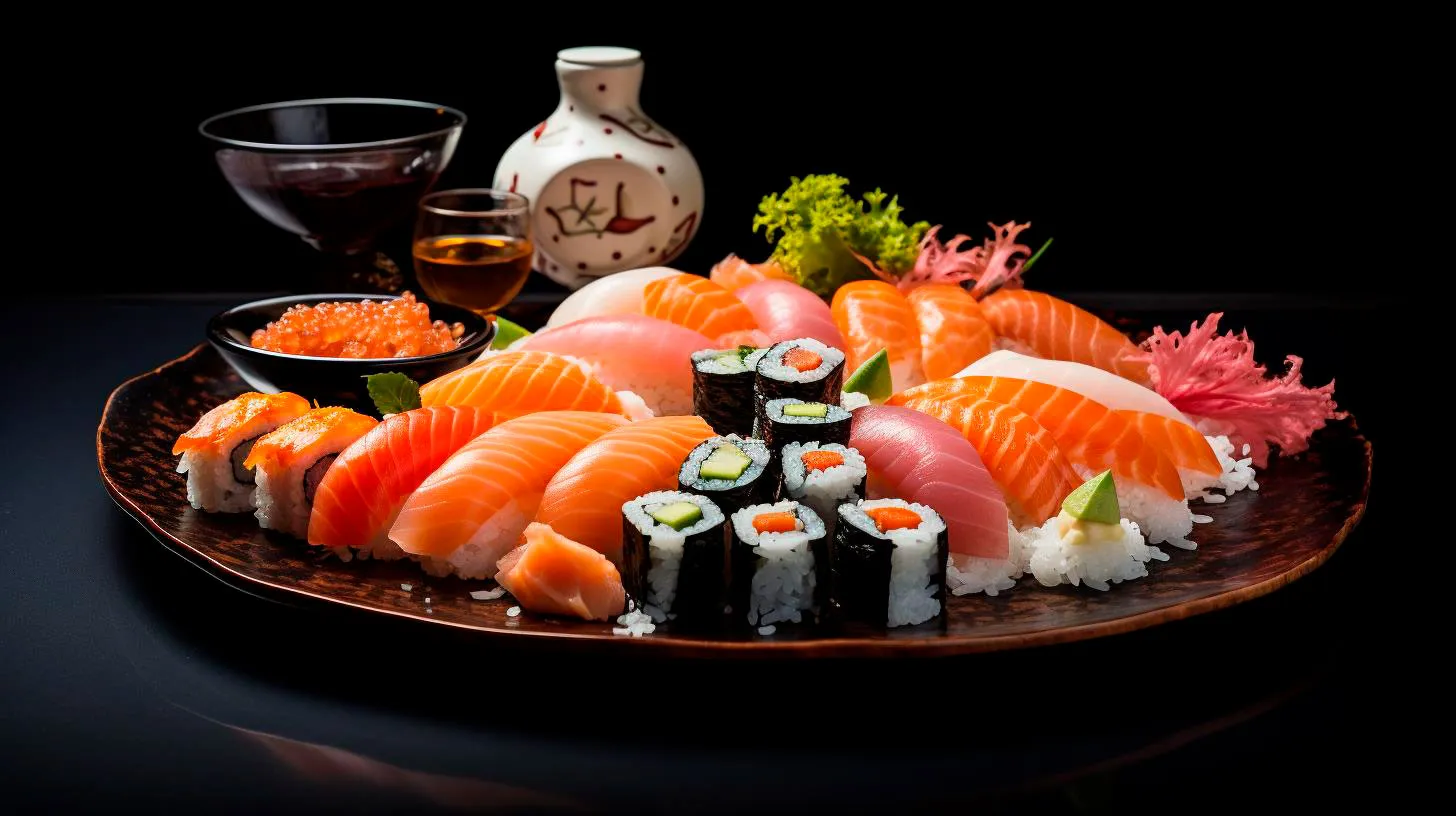The Healing Powers of Matcha: Exploring Tea’s Vital Role in Traditional Japanese Medicine
In this article, we will delve into the fascinating world of matcha and uncover its role in traditional Japanese medicine.
A Brief History
Matcha’s origins can be traced back to China, where it was first used as a medicinal drink during the Tang Dynasty (618-907 AD). Later, it found its way to Japan, where it became an integral part of Zen Buddhism rituals. The Japanese tea ceremony, or “chanoyu,” further elevated the status of matcha, making it a symbol of refinement and tranquility.
The Production Process
Matcha is grown in the shade to enhance the production of chlorophyll and other beneficial compounds. After harvesting, the leaves are steamed, dried, and ground into a fine powder. This vibrant green powder is then whisked with hot water using a bamboo whisk to create a frothy and invigorating beverage.
Key Takeaway: The careful cultivation and preparation process contribute to matcha’s unique flavor and potency.
Rich in Antioxidants
Matcha is packed with antioxidants, particularly catechins, a type of natural phenol and antioxidant that has been extensively studied for its health benefits. One specific catechin found in matcha is epigallocatechin gallate (EGCG), which has been shown to have potent anti-inflammatory, anti-carcinogenic, and neuroprotective properties.
- Antioxidants help protect our cells from damage caused by free radicals, potentially reducing the risk of chronic diseases.
- Matcha contains significantly higher levels of antioxidants compared to other types of green tea due to its unique production process.
Boosts Brain Function
The combination of caffeine and other natural compounds found in matcha can provide a gentle and sustained energy boost without the jitters commonly associated with coffee. Matcha also contains the amino acid L-theanine, which induces a state of relaxation and encourages alpha wave production in the brain. This unique combination results in improved focus, concentration, and mental clarity.
- Matcha provides a smoother and longer-lasting energy boost compared to coffee.
- L-theanine promotes a calming effect, reducing anxiety and stress levels.
- Studies have shown that matcha can enhance cognitive function and improve attention span.
Supports Weight Loss
The high concentration of antioxidants in matcha, combined with its ability to boost metabolism and burn fat, makes it a powerful aid for weight loss. Matcha has been found to increase thermogenesis (the body’s ability to burn calories) and help reduce body fat.
- Drinking matcha may aid in weight management when combined with a healthy diet and regular exercise.
- Matcha’s moderate caffeine content can enhance physical performance by stimulating fat oxidation during exercise.
Strengthens the Immune System
The presence of various vitamins and minerals in matcha, such as vitamin C, selenium, and zinc, helps support a healthy immune system. These nutrients play a vital role in maintaining the body’s defense against pathogens and strengthening overall immune function.
- Matcha can provide an extra boost to your immune system, helping to prevent illnesses and improve overall well-being.
- Matcha consumption has been linked to increased production of white blood cells, which are crucial for immune response.
In Conclusion
Matcha, with its vibrant green color and unique flavor, is not just another type of tea. It holds a special place in Japanese culture and traditional medicine. From its rich antioxidant content to its potential to boost brain function and support weight loss, matcha offers a plethora of health benefits.
If you are looking for a natural and beneficial beverage, matcha is undoubtedly worth incorporating into your daily routine. So, why not unwind with a warm cup of matcha and experience the healing powers of this incredible tea firsthand?
From Hōjicha to Sencha: Uncover the Ancient Tea Rituals Rooted in Japanese Medicinal Practices
In this article, we dive into the fascinating world of Japanese tea rituals, exploring the origins, key characteristics, and the health advantages associated with popular Japanese teas.
The Origins of Japanese Tea Rituals
Tea, known as “ocha” in Japanese, has been an integral part of Japanese culture for centuries. The tea-drinking customs in Japan originated from China and were introduced by Buddhist monks in the 9th century. Over time, these rituals transformed and evolved into unique Japanese tea ceremonies, becoming a significant part of the nation’s heritage.
Today, Japanese tea rituals are typically associated with the preparation and consumption of matcha, a powdered green tea. However, various other teas, such as Hōjicha and Sencha, are also beloved and valued components of Japanese tea culture.
Hōjicha: The Roasted Delight
Hōjicha is a distinct Japanese green tea that stands out for its roasted flavor profile. Unlike most Japanese green teas, which are steamed to halt oxidation, Hōjicha leaves are roasted over charcoal. This unique roasting process imparts a nutty, caramel-like taste to the tea, differentiating it from other varieties.
Key Features and Advantages:
- Hōjicha is low in caffeine, making it an ideal choice for those seeking a milder tea option.
- The roasting process reduces the tea’s bitterness, resulting in a smooth and pleasant taste.
- Rich in catechins, Hōjicha offers antioxidant properties that promote overall well-being.
- Its distinct flavor pairs exceptionally well with desserts and savory dishes.
Sencha: A Time-Honored Tradition
Sencha is the most widely consumed tea in Japan and is hailed for its refreshing taste and vibrant green color. Unlike Hōjicha, Sencha undergoes a steaming process that halts oxidation and preserves its natural freshness and grassy aroma.
Key Features and Advantages:
- Sencha is rich in vitamins, minerals, and antioxidants, offering numerous health benefits.
- Its high concentration of catechins contributes to immunity-boosting properties.
- The tea’s refreshing nature and pleasant aroma make it an invigorating beverage for any time of the day.
- Sencha’s versatility allows it to be enjoyed both hot and cold, depending on personal preferences and seasons.
The Health Benefits of Japanese Teas
Japanese teas, including Hōjicha and Sencha, offer a multitude of health benefits beyond their exquisite flavors. Let’s explore the advantages associated with these teas:
- Antioxidant-rich: Japanese teas are loaded with antioxidants that help combat free radicals and support overall cellular health.
- Metabolism booster: The catechins present in these teas can aid in boosting metabolism and promoting weight loss.
- Immune system support: The abundance of vitamins and minerals found in Japanese teas can strengthen the immune system.
- Stress reduction: The ritualistic preparation and mindful consumption of Japanese teas can have a calming effect, reducing stress and promoting relaxation.
- Improved brain function: The combination of caffeine and the amino acid L-theanine found in these teas can enhance alertness, focus, and cognition.
Embracing the enchanting world of Japanese tea rituals can open doors to a rich and fascinating cultural experience, as well as incredible health benefits.
So, why not indulge in a cup of Hōjicha or Sencha today and immerse yourself in the centuries-old traditions that continue to captivate tea lovers around the globe?
Unlocking the Secrets of Tea in Japanese Kampo Medicine: A Journey into Ancient Wisdom
The Origins of Kampo Medicine
Kampo medicine originated in ancient China and was later adopted by Japan, where it thrived and evolved over the years. This traditional form of medicine focuses on a holistic approach to health, using a combination of herbal medicine, acupuncture, and dietary therapy. Today, Kampo medicine is still widely practiced in Japan and is recognized as an official medical system.
The Role of Tea in Kampo Medicine
Tea, particularly green tea, has long been lauded for its numerous health benefits. In Kampo medicine, tea is used not only as a beverage but also as a powerful medicinal tool. Here are some of the ways tea is incorporated into Kampo medicine:
- Detoxification: Tea is known for its detoxifying properties, helping the body eliminate toxins and promote overall health.
- Anti-inflammatory Effects: Certain teas, such as matcha, have shown anti-inflammatory effects, making them useful in treating conditions like arthritis.
- Stress Relief: The calming properties of tea can help reduce stress and anxiety, promoting relaxation and a sense of well-being.
- Antioxidant Power: Tea is rich in antioxidants, which can help protect the body against free radicals and oxidative stress.
- Digestive Aid: Certain teas, such as ginger tea, can assist with digestion and alleviate gastrointestinal discomfort.
Key Takeaways from Kampo Tea
Now that we have explored the role of tea in Kampo medicine, let’s summarize the key takeaways:
- The origins of Kampo medicine can be traced back to ancient China and have been widely adopted and evolved in Japan.
- Kampo medicine takes a holistic approach to health, incorporating herbal medicine, acupuncture, and dietary therapy.
- Tea plays a significant role in Kampo medicine, with its detoxification, anti-inflammatory, stress-relieving, antioxidant, and digestive properties.
The Power of Tea in Modern Medicine
While Kampo medicine has ancient roots, its principles and practices continue to be relevant in the modern world. The integration of tea into Kampo medicine highlights the potential of traditional remedies in complementing contemporary medical practices.
Research studies have also shed light on the benefits of tea in modern medicine:
- In a study published by the Journal of Nutrition, it was found that green tea extract can help boost metabolism and aid in weight loss.
- According to a study conducted by the American Journal of Clinical Nutrition, drinking black tea was associated with a reduced risk of heart disease.
- Research published in the Journal of Agricultural and Food Chemistry suggests that white tea has potent anticancer properties.
These findings highlight the potential of tea as a powerful tool in promoting health and preventing diseases.
Conclusion
Tea has been woven into the fabric of Japanese culture for centuries, and its significance extends beyond just mere enjoyment. As we have discovered, tea plays a fundamental role in Kampo medicine, an ancient healing tradition that focuses on holistic health.
By unlocking the secrets of tea in Kampo medicine, we gain a deeper understanding of its potential benefits in modern-day healthcare. Whether enjoyed for its calming effects, detoxifying properties, or antioxidant powers, tea truly is a drink that holds ancient wisdom.
The Medicinal Properties of Japanese Herbal Tea: An Ancient Remedy for Modern Health Concerns
1. Rich in Antioxidants
Japanese herbal tea is packed with antioxidants, which are essential for fighting free radicals in the body. These free radicals can cause cellular damage and contribute to aging and chronic diseases. By consuming Japanese herbal tea regularly, you can enhance your body’s defense system and protect yourself against oxidative stress.
- Key takeaway: Japanese herbal tea can help slow down the aging process and reduce the risk of chronic diseases.
2. Boosts Immunity
The immune-boosting properties of Japanese herbal tea are well-documented. It is particularly effective in strengthening the immune system, making it less vulnerable to illnesses such as colds and flu. Regular consumption of this tea can enhance your body’s ability to fight off infections and stay healthy.
- Key takeaway: Japanese herbal tea can help improve your body’s immune response.
3. Promotes Digestive Health
If you often experience digestive issues such as bloating, indigestion, or constipation, Japanese herbal tea can offer relief. It stimulates the digestive system, aids in digestion, and soothes any discomfort. Incorporating this tea into your daily routine can promote a healthy gut and alleviate digestive problems.
- Key takeaway: Japanese herbal tea can improve digestion and provide relief from digestive issues.
4. Calms the Mind
In today’s fast-paced world, stress and anxiety have become ubiquitous. Japanese herbal tea, such as chamomile or lavender tea, can help calm your mind and relax your body. It contains natural compounds that promote relaxation and reduce stress levels. By incorporating this tea into your evening routine, you can unwind after a long day and promote a restful night’s sleep.
- Key takeaway: Japanese herbal tea can help reduce stress and promote better sleep.
5. Supports Weight Loss
Many Japanese herbal teas are known for their weight loss properties. Green tea, for example, is rich in catechins and caffeine, which can boost metabolism and increase fat burning. By incorporating Japanese herbal tea into your diet and maintaining a healthy lifestyle, you can support your weight loss journey.
- Key takeaway: Japanese herbal tea can aid in weight loss efforts when combined with a balanced diet and exercise.
Conclusion
Japanese herbal tea is not only a delicious beverage but also offers numerous health benefits. From its antioxidant properties to immune-boosting effects, this ancient remedy can address modern health concerns. By incorporating Japanese herbal tea into your daily routine, you can enjoy a healthier, more vibrant life.



